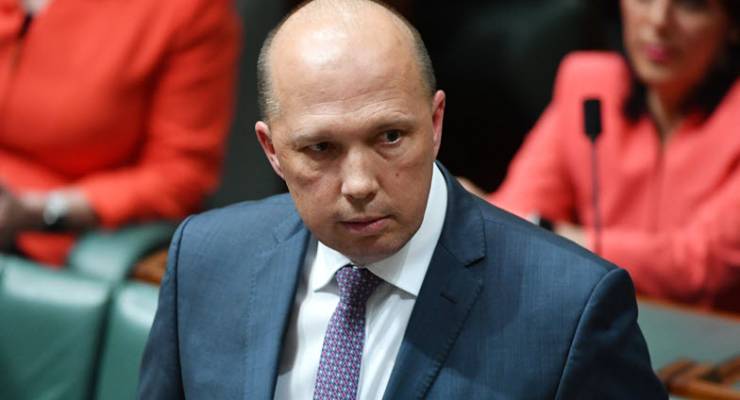
When the Supreme Court of Papua New Guinea declared on April 26 last year that the detention since mid-2013 on Manus Island of asylum seekers by the Australian and PNG governments was unlawful, the expectation was that both governments would literally open the gates of the detention centre and let the 800-plus men go free. That, however, is not what happened, and Thursday the matter was back before the Supreme Court in Port Moresby to examine the actions of the PNG and Australian authorities after they received news of the court’s ruling.
The PNG Supreme Court ordered that “the Australian and Papua New Guinea governments shall forthwith take all steps necessary to cease and prevent the continued unconstitutional and illegal detention of the asylum seekers or transferees at the relocation centre on Manus Island and the continued breach of the asylum seekers or transferees Constitutional and human rights”.
What is clear from documentation created in anticipation of the court ruling last April is that those men detained by Australia and PNG at what is called the Manus Regional Processing Centre (MRPC) were anything but free, despite the court’s unambiguous decision.
Anticipating that the Supreme Court would rule in favour of ending detention on April 25 the PNG immigration authorities, in consultation with the Australian Border Force, decided to establish a shuttle bus service from the MRPC to the nearby town of Lorengau for detainees. Initially, it was available only to those men who had been accepted as refugees or who had received a positive review after initial assessment but after the court decision the bus service was extended to all detainees.
On April 27, the day after the court decision, detainees were advised of the PNG Supreme Court decision and told they were “free to move in and out of the MRPC using the bus services”, according to an affidavit of Dennis Badi, the operational manager of the MRPC.
However, when detainees were at the MRPC they would continue to be subject to centre rules, which included searches, banning of contraband, no alcohol or drugs, and no more than three packets of cigarettes. In other words, despite the Supreme Court ruling detainees still had their liberty restricted in a very material way by the PNG and Australian governments.
Even the shuttle bus service and visits to Lorengau were heavily regulated. An operations order published on April 26, 2016, by Broadspectrum (formerly Transfield), the Australian government’s contractor, and “endorsed by” a Daniel Beronic of the ABF, includes a “Voluntary Code of Conduct” that includes the requirement that those detainees who use the bus service “must return” to the “MRPC within the agreed curfew time”. The 16-page document tells detainees they must not return to the MRPC with “contraband” and that “non compliant returning residents” will be handed over to the PNG police. Operators of the bus service and other employees and contractors of the MRPC are to “conduct hot debrief and capture lessons daily through shift supervisor”.
In another document, a “Communication Guide” prepared by the PNG government on April 25, 2016, detainees are told that if they miss the last bus back to the MRPC “you will be required to stay at the Transit Centre [in Lorengau] until you can return to the RPC the following day”.
What the operations order and communication guide make clear is that the PNG government and Australian Border Force were continuing to exercise control over the movement of Manus detainees after the PNG Supreme Court decision declared that they had been falsely imprisoned, that their right to liberty under the PNG constitution had been breached and that the Australian and PNG governments should stop this unlawful conduct immediately.
So what should have happened on April 26 last year? The Australian and PNG governments should immediately have opened the gates of the MRPC, told the men they were free to leave and arranged the issue of appropriate travel documents for those who wanted to leave PNG. Such an action would have complied with the PNG Supreme Court decision and orders. Of course, from the Australian side of things, we know that Immigration Minister Peter Dutton and his department are often contemptuous of court rulings that do not suit them. Dutton routinely overturns court decisions and takes to the media to blast independent judges. It appears his attitude to the PNG Supreme Court was no different.
*Greg Barns is a barrister and spokesman for the Australian Lawyers Alliance. He has provided advice to the PNG legal team working on Manus Island detention issues.








It’s the same as Israel’s repeated bleat that they have ”freed” Gaza by taking out a couple of thousand Israeli illegal immigrants and putting them illegally in West Bank while imposing 100% control over both areas.
Dutton has his hostages, he refuses to actually do his job, just like Morrison before him, and uses them to gain political advantage at the feet of the racists.
Greg, Why couldn’t PNG Supreme Court “haul” Broadspectrum before the Bench?
Years ago I despised Howard as a deceiver and truth twister, but Dutton supercedes any of the bastardry Howard got up to. Like many I loathe and detest Dutton and wish him a speedy departure. I also fear that this deadshit will accrue more power as time goes on. I hope when Labor get back they will disentangle the web of power that Turnbull and Dutton have spun and clearly delineate the powers and responsibilities of those Federal departments that Dutton has blended in his quest for dictator status.
Its hypocrisy for Bishop to round on the likes of North Korea for defying UN treaties and for Thailand to violate UN human rights charters when this Gov. runs the concentration camps in defiance of the PNG high court and UN decrees. Dutton would fit nicely in Hitler’s cabal.